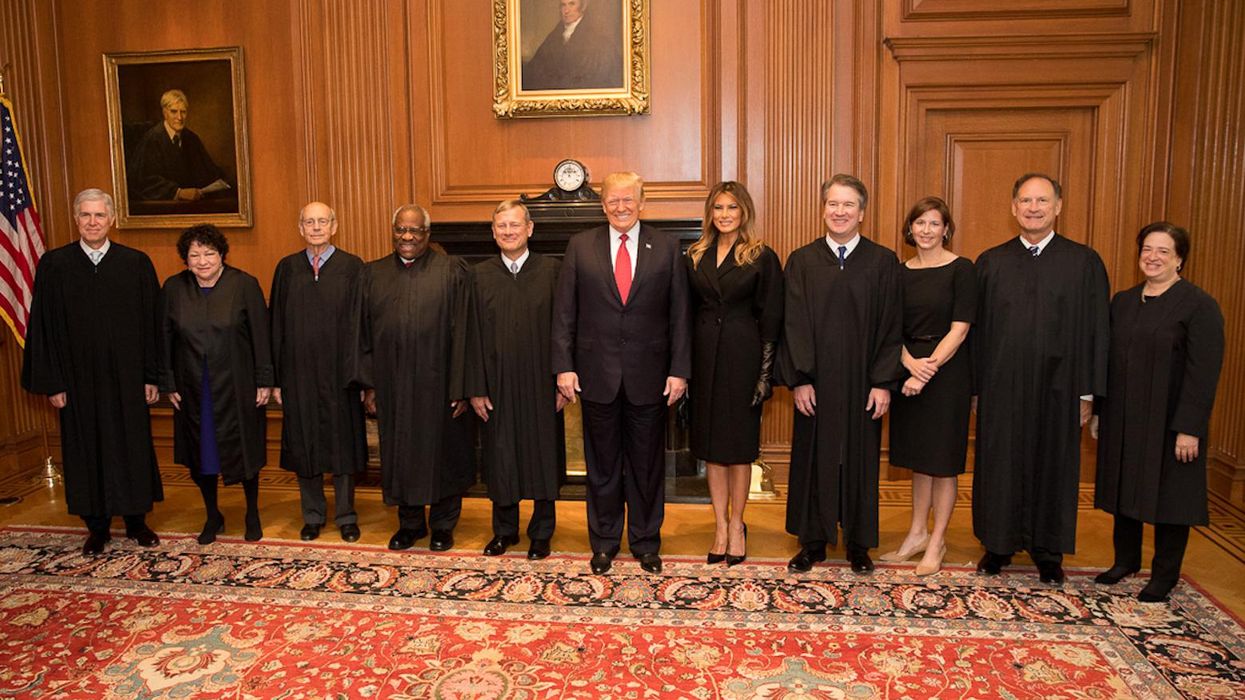Constitutional law experts are warning of “limited options” if President Donald Trump defies federal judges’ orders to limit the scope of his executive actions, Business Insider reports.
This, Politico reports, comes as “at least nine federal judges — from Washington, D.C., to Washington state — have halted aspects of Trump’s early-term blitz, from his effort to rewrite the Constitution’s birthright citizenship guarantee to his sweeping effort to freeze federal spending to his plans to break and remake the federal workforce.”
As courts prepare to challenge Trump's broad claims of presidential authority, his supporters are railing against perceived judicial overreach — and insist “the president’s orders are well within the powers outlined in the Constitution’s second section on the executive branch."
READ MORE: GOP senator says there 'have to be guardrails' on Musk as Jim Jordan insists 'God bless him!'
“It is the judicial pushback, they say, that is overstepping the constitutional boundaries laid out in the third section on the judiciary,” the New York Times reports.
“President Trump is not stealing other branches’ powers,” conservative activist Mike Davis told the Times. “He is exercising his Article II powers under the Constitution. And judges who say he can’t? They’re legally wrong. The Supreme Court is going to side with Trump.”
University of North Carolina School of Law in Chapel Hill constitutional law professor Michael J. Gerhardt said if Trump does defy a court order, “the consequences would likely fall on lower-level officials, not the president himself,” Business Insider reports.
"At the very least, you would have a possible contempt citation directed at a particular official who has refused to comply with a court order," Gerhardt said, "If they indicate they are defying it because of his order, then the court is going to include the president in the citation of contempt.”
READ MORE: AL GOP senator urges Trump admin 'to not hinder' research schools as cuts threaten economic juggernaut
Still, as reporters Brent D. Griffiths, Natalie Musumeci and Laura Italiano explain, enforcement of court orders “fall to the Justice Department — which answers to Trump.”
Or, as Cornell Law School professor Michael Dorf put it, “The president has much more force at his disposal than do the courts.”
Some legal experts see a deliberate strategy in Trump's approach beyond brute force.
Columbia Law School constitutional law teacher Michael Paradis told Business Insider he believes part of the president’s “strategy is to manifest (court) defiance in many ways, so it becomes very difficult to keep track of all of them.”
READ MORE: 'You are the government': Dana Bash calls out Kristi Noem's excuses
"We're not just talking about one thing, it's many things. And I think one reason why there are many things is because it overwhelms the system,” Paradis said.
Yale Law School professor appeared to concur with Paradis, telling the Times the Trump Administration “seems to have wanted challenges that consume a ton of resources — of opponents, courts and public attention — even as members of the administration know the provisions do not square with the law that exists.”
Still, the administration insists Trump has the law on his side. “Every action taken by the Trump-Vance administration is fully legal and compliant with federal law,” White House spokesman Harrison Fields said, according to the Times. “Any legal challenge against it is nothing more than an attempt to undermine the will of the American people.”
READ MORE: Evangelical leaders turn on Trump over 'damaging and wasteful' foreign aid cuts


